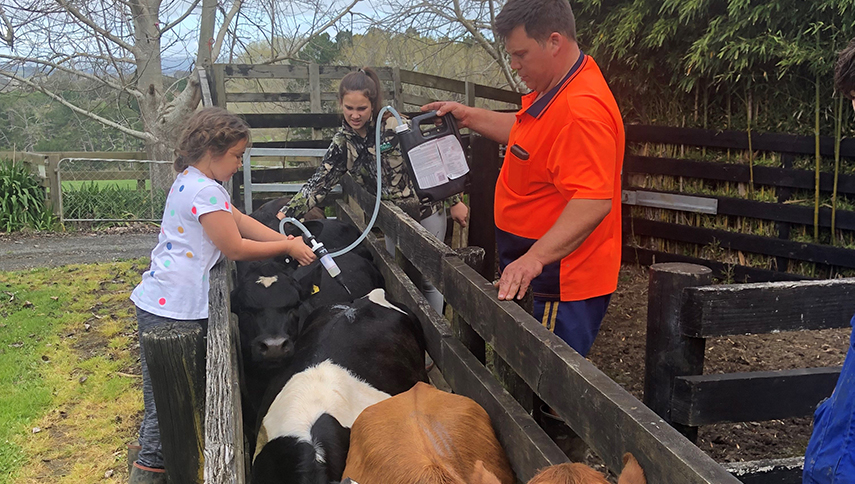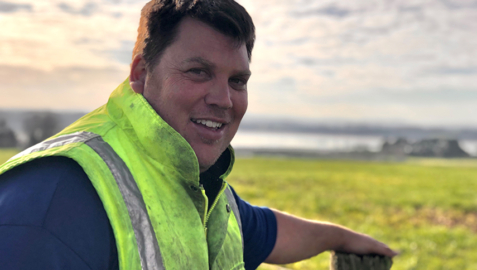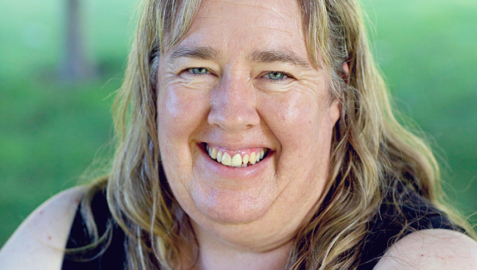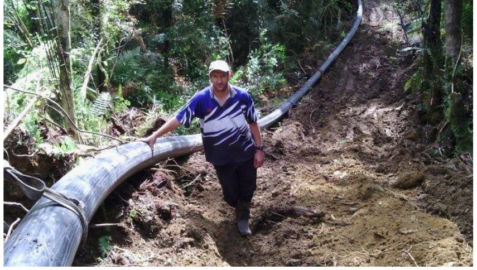
No need to do it alone
Module Overview
Todd and Anneke Reeves manage 480 cows on a 250 ha family farm in Pukekohe, South Auckland. Todd recently shared his thoughts with Farmstrong on how to live well to farm well.
How’s the season going?
“We’re having a really good season this year, especially with the pay-out. We also run a small beef block and the beef prices are high too. So all good.”
It sounds busy. How do you manage time off?
“We’re very lucky we’ve got great staff and good systems. We make sure the boys get every second weekend off and we make sure we take breaks when we can too. Over lockdown we weren’t able to get away of course, but we’ll take a good break over Xmas. We’ve got it all rostered out so everyone’s getting a couple of weeks off.”
There’s always another job to do in farming, isn’t there? It can be tempting to just keep going.
“Yes, exactly. You can certainly get yourself into a situation where you’re just working all the time. You’re going to take a day off and then something breaks in the cowshed or there’s a water leak and you think you’d better fix it yourself. You need strategies to make sure you don’t overdo things.”
What are your go-tos?
“I’m heavily involved in our local rugby club, Patumahoe, coaching junior boys. I became a life member there last year. I coached my son all the way through and he’s now 17. Looking back, it was a great way to just get off farm and talk to other people who weren’t in your industry. You soon realise everyone faces the same pressures – work, kids, owning a business – and that’s why we all need downtime. Rugby’s great for that. You just have to be at the game or training at certain times because people are relying on you. So, you haven’t got time to hang around and fix a gate.”
You’re also both heavily involved in the school, aren’t you?
“Yes, we really love helping out there. Our kids [Connor (17), Sophie (15) and Jemma (11)] have all been through the school, so we’ve always been involved in the calf club and Anneke’s been chair of the board. I used to go and spray the weeds, join in the working bees. And when the school cancelled calf club in 2020, we held it here on our farm with 20 kids. We had lambs and calves and organised judges. We didn’t want the kids who are passionate about animals to miss out on that. It was a great day.”
How do these activities help you farm better?
“Farming can be an isolated occupation. I think if you spend too much time alone, it’s not healthy. It’s good to make time for other people and activities in your community.”
“I’m also lucky Anneke and I work well together. Our beef block is half an hour away so she often comes with me in the ute and we talk over things and plan our weeks. Talk about how life is. That’s important too.”
“Anneke also helps out with the paperwork which I find the hardest part of farming. I love being outside, looking after cows and making the farm look nice, rather than sitting in an office. So that’s a huge help. It’s been a real partnership.”
Lack of sleep is an issue for many farmers. How do you make sure you get enough?
“We run a 3 in 2 system (three milkings, two days). We start at 4.30am one morning and seven o’clock the next, so every second morning the boys don’t have to turn up til 7 o’clock. That works really well, not only for your sleep, but also your lifestyle. Once a day milking also means you get a bit more of a break in the afternoons. So, if you want to shoot off and go fishing in summer, you can.”
What about managing stress?
“What works for me is picturing how the next day’s going to roll before I go to bed. Mentally I’ll go, ‘ok I’ll milk in the morning, then I’ll check the calves at the run-off, then I’ll come in for breakfast, then I’ll feed out before lunch.’ Planning out my day like that, including my breaks, gives me a real sense of control, so I don’t get stressed.”
What about dealing with unforeseen setbacks?
“Learning to handle things flipping on you during the day is a big part of farming. If there’s a water leak you need to tend to and your plans go out the window, you just have to learn to let go and not panic over what you didn’t get to. Just tell yourself, it’s not your fault and get on with it. I always think as long as I’ve got food and water for the animals and food and water for my family, we’ll all survive another day.”
Do you have good support networks?
“I’ve got a few groups actually. Old school mates I catch up with regularly for a beer and a group of local farmer mates too. We catch up at discussion groups and if someone’s doing sileage we’ll all go and do it together and have a beer after and see how everyone’s going on their farms.”
Have you heard of Farmstrong?
“I think Farmstrong’s awesome. It’s important to discuss these issues. Let’s face it, there are certainly times of the year in farming when people can get very down, like during calving when it’s been raining constantly for a month and a half and you’ve got the wet weather gear on constantly. Life can feel pretty miserable. That’s why having good people to talk to and other things happening in your life is essential.”
What advice would you give to someone starting out?
“You’ve got to enjoy what you’re doing in farming. Find your thing. What are the parts of the job you like? Me, I love seeing happy, healthy animals. When I put them in the paddock and their heads are down eating quality feed, then I know I’m doing something right.”
“The other thing is don’t be afraid to ask for help. I’ve been farming for 22 years so I realise when there’s too much rain or a drought that we’ve all been there before and got through. But if it’s your first time, it can feel stressful. That’s why it’s good to keep talking to other farmers. There’s no need to do it alone in farming. People are happy to share what they know and help.”
Farmstrong is a nationwide, rural wellbeing programme that helps farmers and their families cope with the ups and downs of farming. To find out what works for you, check out farmstrong.co.nz



